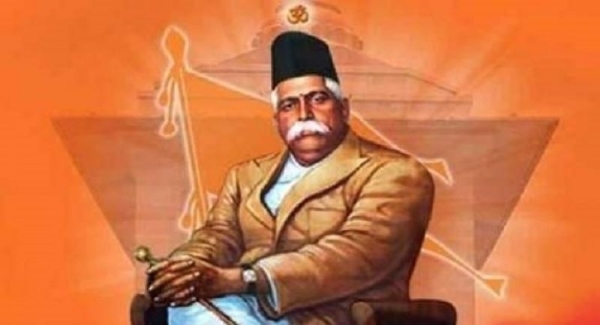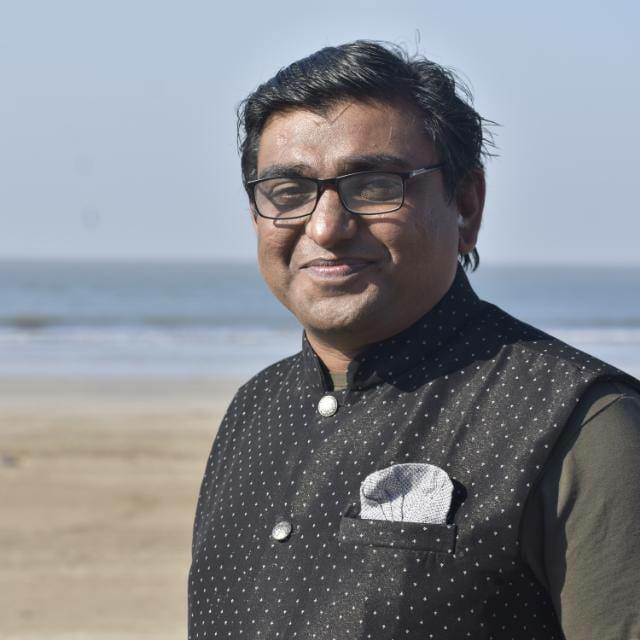Doctor Hedgewar ji: The Great Son of the Motherland
Dr. Keshav Baliram Hedgewar, also known as Doctorji, was a man of virtues.
Total Views |
When many freedom fighters from the village to the national level fought against British misrule. Shri Keshav Baliram Hedgewar ji, a freedom fighter who had faced difficulties in his personal life since childhood, had dedicated himself to the cause of the nation while also completing his education. He was imprisoned twice for opposing British rule and injustice. While working to free the country from the clutches of Britishers, he became aware of a few significant characteristics of the Indian people as a whole.

He realised that the majority of people had forgotten the roots of great Indian culture, developing a slave mentality and losing their fighting spirit. People have not been prepared to focus on developing national character. Society has been systematically rigged to fight primarily on the basis of caste, so that people never band together to fight British rule. The minds had been poisoned against the great Vedas, Upanishads, and culture. People had forgotten the great warriors of the past and saints, such as Chhatrapati Shivaji Maharaj, Maharana Pratap, Swami Vivekanand.... They had forgotten the immense wisdom of the Bhagavad Gita and Chanakya Niti.
The most important realisation was "Shatrubodh," people had lost the discriminatory power to know who is our friend and who is trying to destroy us. This has created a significant schism between the masses and the leaders. This has created more enemies within various groups, as well as unnecessary controversies. This has done significant damage to the fabric of society and harmed the Sanatan Dharma. Conversions to Islam and Christianity were multifaceted.
All of these realisations caused Dr. Hedgewar to reconsider his position. To make India great again socially, economically, and spiritually, grass-root work with a multi-dimensional approach was required, so that it will make our nation so strong that no one will dare to invade this great nation again.
Since aour Hindu culture places a high value on practise and rejects empty intellectual arguments that are not accompanied by positive action, these few memoirs from Dr. Hedgewar's life are extremely important in today's Hindu Renaissance. These seemingly insignificant incidents touch the heart, and the actions depicted in them demonstrate the depth of national character, of a towering personality. Dr. Hedgewar's day to day activities and conversations, imbued with profound meaning, have become a source of inspiration for millions around the world.
Doctorji formed close friendships with students from various provinces soon after starting college. He cultivated them in his spare time. He quickly rose to the position of most sought-after friend. There was hardly anyone who wasn't drawn to him. That was his friendly and amiable demeanour.
Gandhiji once asked what is really expected of you as a volunteer? Doctorji replied, A person who spends his life lovingly for the salvation of the nation is a volunteer. Swayamsevak means patriot, swayamsevak means social worker, swayamsevak means heroic strong leadership. The goal of the Sangh is to create and integrate such volunteers. There is no difference between a volunteer and a leader in a team. We are all volunteers and equal. There is no difference between us, big or small. We all respect and love each other equally. Pure Sattvic love is the basis of our work and only because of this the Sangh has progressed in such a short period of time, without any outside help, without money and fame. Gandhiji said, I'm really glad to hear that. The country will benefit from your efforts and success.
Some of his great characteristics-
Sufferers' friend
Doctorji had a lot of sympathy for people who were in trouble. In 1913, the river Damodar in Bharat's Bengal province was in flood. Floodwaters inundated people, animals, homes, and huts. Doctorji and his companions swung into action. They rushed to the scene to protect the victims and provided assistance in their hour of need. He fed the hungry and spoke words of courage and confidence to those who had lost all hope for their future. Keshavrao kept himself busy all hours of the day and night. No language or geographical barriers stood in his way of serving the people.
"The task must be completed." - The motto of Doctorji
At 6:30 p.m. one evening, a swayamsevak brought Doctorjee a request from Wardha City's most senior Sangha officer (40 miles from Nagpur). Wardha needed a taxi very early the next morning. To arrive on time, the taxi would have to leave Nagpur by 6 a.m. A swayamsevak from Nagpur volunteered to arrange for the taxi. When he went to talk to the taxi drivers, no one readily agreed to leave Nagpur so early the next morning. At 9.30 p.m., the volunteer returned, informed Doctorji that the task could not be completed, and went to bed.
Around 3 a.m., the volunteer in Sangha Karyalaya (office) awoke to find Doctorji standing at the door! He opened the door, surprised and dismayed, and asked Doctorji what was wrong. "Well, I came to tell you that the taxi cab has been arranged," Doctorji said. Please make sure that you and the Wardha worker get up on time." While the volunteer had tried and failed, Doctorji did not drop the ball; he continued to try with patience and perseverance until the task at hand was completed.
Doctorji was a firm believer in simplicity:
Doctorji took a short vacation and stayed in the luxurious home of one of his wealthy friends, Shri Nana Saheb Talatule. Shri Talatule was an expert marksman and hunter. Everyone in his house wore heavy rugs made of animal furs and skins. Doctorji and his companion Swayamsevaks were given the rugs by Shri Talatule.
Despite the fact that it was a bitterly cold and windy night, Doctorji pulled out his old, worn "Kambal" (a handspun, thin rug) from Nagpur and replaced it with the lush rugs provided by his host. That "Kambal" was not suitable for the bitterly cold night. "Doctorji, when our gracious host has provided us with such excellent, comforter rugs, why are you still using old 'Kambal?" asked the Swayamsevaks. It's completely inadequate for freezing, chilly night!"
Doctorji's calm response can still be needed today. "Just because we are temporarily surrounded by articles of luxury does not mean that we have to succumb to their use," he said. It is preferable if we are happy and content with the simple things we can afford for daily use!"
Doctorji's dedication and hard work in building an organisation that spans 150 nations, with nearly 140000 seva projects and millions of Swayamsevaks working to build a healthy society and a great nation. It's time to remember and honour this great leader on his Birth Anniversary.


